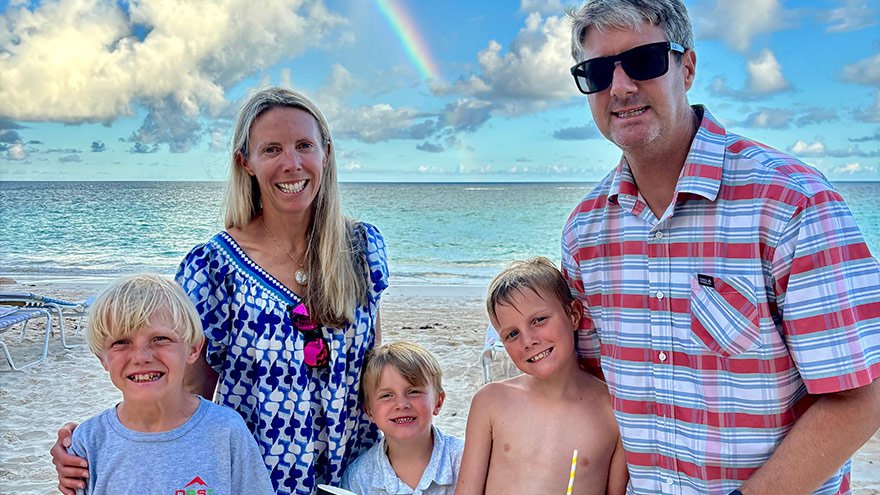

August is National Make-a-Will month. We talked to Renown Health Foundation Planned Giving Officer, Abbey Stephenson, to learn more about wills, trusts and estate plans and why you should feel motivated this month to get started.
Did you know that 2/3 of Americans don't have a will or trust? If this is you, don’t worry, you’re not alone.
Although there are laws in place to determine who inherits your assets if you die without a will or trust, having a will or trust ensures your assets go where you want them to go after you are gone. They can also help minimize disputes between family members and heirs about who gets what. In Nevada, the laws that govern who gets what if you die without a will or trust can be found in Chapter 134 of the Nevada Revised Statutes.
There are other documents that people often prepare at the same time as their will or trust – like an advance health care directive and durable power of attorney for assets. These documents all together are called an estate plan.
Although they have other purposes too (like nominating a guardian for a child, planning for disability or avoiding probate, which is a court process), wills and trusts are documents that say who will receive your assets after you are gone. The most common type of trust is often called a revocable living trust or a family trust. People who have a trust usually still have a will, although it is a shorter form of will called a pour-over will. It’s a good idea to talk to an estate planning attorney about whether or not a trust makes sense for your family or circumstances.
Now that you’re ready to get started, here are some mistakes to avoid:
1. Failing to plan
Not setting aside the time to plan may be the biggest mistake. Failing to prioritize preparing or updating your estate plan means your last wishes and desires may not be fulfilled. The right documents memorialize what you would like to happen upon your disability and death so that other people can know and follow your wishes with respect to your care and your assets.
2. Failing to coordinate beneficiary designations
Certain types of assets like life insurance and retirement accounts are not covered by your will or trust and need to be addressed separately. These types of assets are referred to as non-probate assets because they transfer under contract principles and don’t require court supervision or probate to be distributed to the named beneficiaries. By completing beneficiary designation forms provided by the retirement account custodian, insurance company or financial institution, you can direct your assets to one or more beneficiaries.
3. Failing to title your assets properly
Asset titling refers to how you own your asset – such as in your individual name, jointly with someone else, or in a trust or entity. For example, assets titled for two people with a “right of survivorship” will automatically go to the surviving owner. Review your asset titling and make changes, if needed, to ensure your property and assets are passed down the way you intend.
4. Failing to include charities meaningful to you
In addition to providing for family members and other important people in your life, you may also choose to give to charities meaningful to you in your estate plan. When you include a charity in your estate plan, that gift is called a planned gift and many charitable organizations, including Renown, recognize such donations through their legacy giving societies and provide sample language for donors to use in their will or trust.
As you prepare to make your own will or a more comprehensive estate plan, we recommend consulting a lawyer. Here are some free resources that may be helpful:
- Renown Health Foundation is proud to sponsor the Family Estate Planning Series put on by PBS Reno and the Community Foundation of Northern Nevada. The free, seven-week course of 90-minute, in-depth workshops is a great place to learn much more and to help you get started in the planning process. The series is held twice a year, once in the spring and once in the fall. To find out when the next series begins, click here.
- Renown Health offers periodic estate planning workshops where attendees can learn some basics about estate planning, wills, and trusts. To find out when the next workshop is taking place and for more information, click here.
- Renown Health offers periodic advance health care directive workshops where attendees can learn about, complete, and sign their directive. For more information, click here.
- Renown Health periodically publishes blogs on estate planning topics like this one. Check the Renown Health Foundation blog here for the latest Foundation news and posts.
- Northern Nevada Legal Aid provides limited, free legal services to northern Nevada residents who are 60 and older. For more information, click here.
- The American College of Trust and Estate Counsel provides information on a number of commonly asked estate planning questions here.
If you are interested in including a charitable gift to Renown in your estate plan, we would be happy to talk to you about ways to structure your gift and how your gift will make a difference for our mission. Please contact Abbey Stephenson at Abbey.Stephenson@renown.org or visit renown.org/LegacyGiving to learn about Renown Health Foundation’s Legacy Giving Society and ways to give.
Related Blogs


From the Brink of Loss to a New Beginning: The Sloan Family’s ECMO Journey
